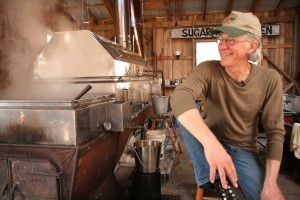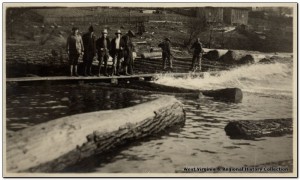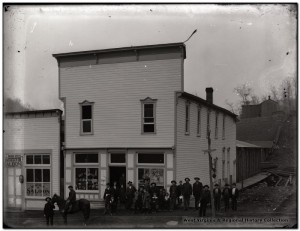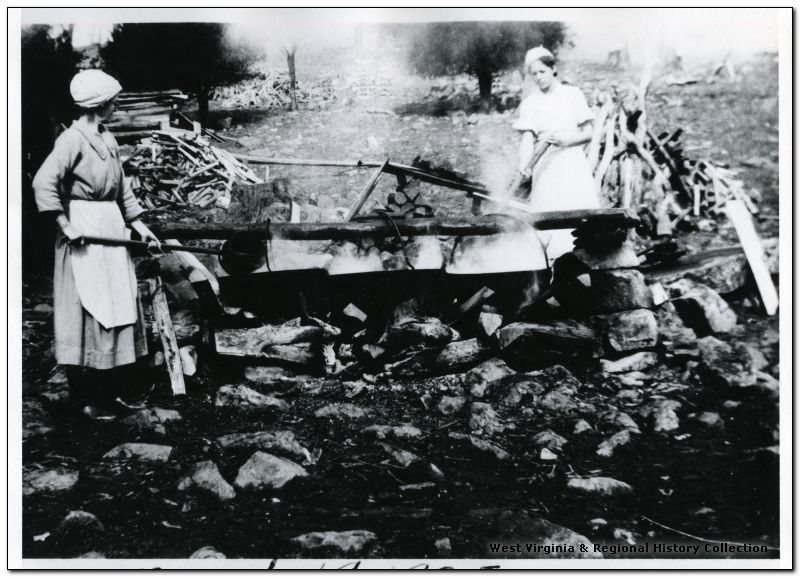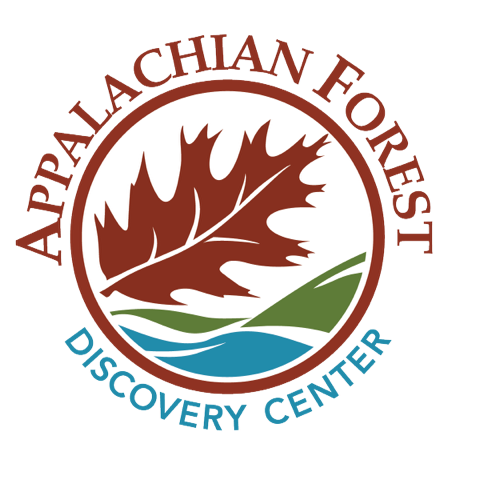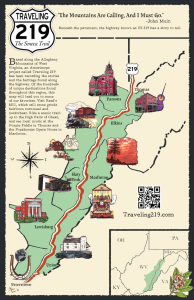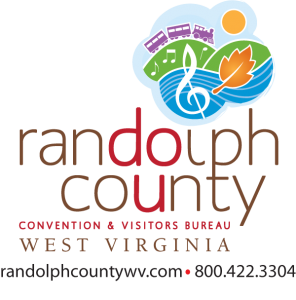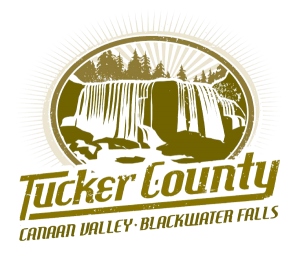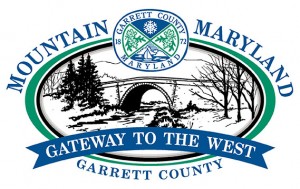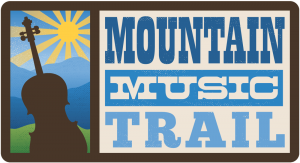Pickens Maple Syrup Festival
Last weekend the isolated Randolph county town of Pickens drew a couple thousand visitors to eat at the annual Maple Syrup Festival. About 45 gallons of fresh West Virginia Maple Syrup were consumed in two days at the Pickens pancake breakfasts.
After I grabbed a plate of buckwheat pancakes and sausage, I met up with Debbie Morgan inside the American Legion Hall.
“We usually serve around 2,000 pancake meals,” says Debbie Morgan. She and her siblings have been some of the main organizers of the Pickens festival since it began in 1985. She was born and raised in Pickens, but like many of the event’s organizers, she and her family moved away to Charleston and then to Buckhannon to find work.
In mid-March, dozens of people like Debbie return to Pickens to help prepare and cook for the Maple Syrup Festival.
“Back in the kitchen helping there are people from Ohio, people from Pennsylvania. People from all over— people that come back to help. There are two maple syrup camps here. One is on the way to Elkins, and they sell their syrup here, but we actually buy our syrup for the breakfasts from Mike Richter, which is located in Pickens,” says Debbie. Mike Richter processes about 1,o00 gallons of maple syrup each winter. Since 2008, Don Olson has been making maple syrup at Blue Rock Farm, the only certified organic maple syrup camp in West Virginia. That farm is located outside of Pickens on the way to Mill Creek.
The Maple Syrup Festival coincides with what are usually the most ideal conditions for tapping maple trees, as freezing temperatures at night, followed by warmer days, allow for the best tasting and the best flowing maple sap. The liquid sap is then processed into rich, thick syrup using a 150-gallon wood burning sap evaporator. Although this usually begins in February, this winter the production has been more delayed, due to far fewer warmer days than usual, says Olson. Processing enough maple syrup in time for the festival is no small undertaking. It can take as many as 50 gallons of sap to reduce down to 1 gallon of syrup.

Loggers at Work for the E. M. Bonner and Associates Ranwood Lumber Company, Pickens. Courtesy of West Virginia and Regional History Collection, West Virginia University Libraries
“We go through, probably, anywhere from 40-50 gallons of syrup for the pancake breakfasts during the weekend of the festival,” says Debbie. That syrup for the breakfasts all comes from Mike Richter’s farm, which has been supplying the same syrup to the festival since it began in 1985.
Part of the reason Pickens is such an ideal area for sugar maples is because of the high altitudes and long winters here. It snowed on July 4, 1892, the day the first train ran between Pickens and Buckhannon. Many still remember riding the final passenger train that left Pickens in 1958. During the timber boom, Pickens had 1,500 people living here. Today, there are about 20, and most of them commute to Buckhannon or Elkins for work.
“There’s not many people live that here now. I mean there’s hardly anyone. Everyone that has lived here comes back. I mean so many people come back to help from all over the country. And they bring their kids with them. The money that’s made from the festival—we use it back into the buildings,” says Debbie.
This past year the Pickens Historical Society replaced a roof on the community’s Craft House. The project was funded with money raised at past Maple Syrup Festivals. But much more than the money, says Debbie, it’s the people who return to Pickens each year that continue to make the festival what it’s become.
“On our 25th festival, an older gentleman from Spencer, West Virginia, he came in and he said, ‘Honey I want to tell you I’ve been here for 25 years,’ meaning he’d been here every year. And I said, ‘Why do you come back?’ And he said, ‘I look forward to this all winter.’ That almost makes me teary eyed. And I’m like, we’ve got to keep doing this, you know?”
Those who drive all the way out to Pickens for the Maple Syrup Festival seem to because they love the place. But more than that, they love what this festival represents— survival. For many here, as it is throughout West Virginia, survival is synonymous with festival season. And it always begins each March in Pickens.
“And then tonight we have the ham and bean dinner, and then we have the square dance. And that’s kind of a wind down for us. And then we have to get up tomorrow morning and start all over again.” Debbie laughs. She’s then called away by her son and her sister to help wash dishes from breakfast, while I leave to catch some of the music by the Night Crawlers at the Pickens Opera House.
music for this story is by the Night Crawlers, and at the outro you heard Ward Allen’s Canadian Fiddle tune “Maple Sugar”.
Category: Blog, Elkins to Marlinton, Food & Farming

